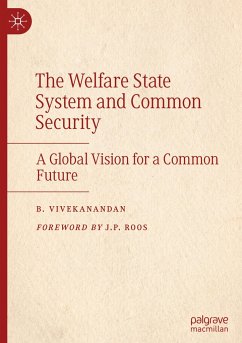
Discretion and the Quest for Controlled Freedom
Versandkostenfrei!
Versandfertig in 6-10 Tagen
106,99 €
inkl. MwSt.

PAYBACK Punkte
53 °P sammeln!
Looking at discretion broadly as the exercise of controlled freedom, this edited volume introduces insights from a range of social sciences perspectives. Traditionally, discussions of discretion have drawn on legal notions of the appropriate exercise of legitimate authority specified by legislators. However, empirical and theoretical studies in the social sciences have extended our understanding of discretion, moving us beyond a narrow legal view. Contributors from a range of disciplines explore the idea of discretion and related notions of freedom and control across social and political pract...
Looking at discretion broadly as the exercise of controlled freedom, this edited volume introduces insights from a range of social sciences perspectives. Traditionally, discussions of discretion have drawn on legal notions of the appropriate exercise of legitimate authority specified by legislators. However, empirical and theoretical studies in the social sciences have extended our understanding of discretion, moving us beyond a narrow legal view. Contributors from a range of disciplines explore the idea of discretion and related notions of freedom and control across social and political practices and in different contexts. As this complex and important topic is discussed and examined, both total control and unconstrained freedom appear to be illusions.














